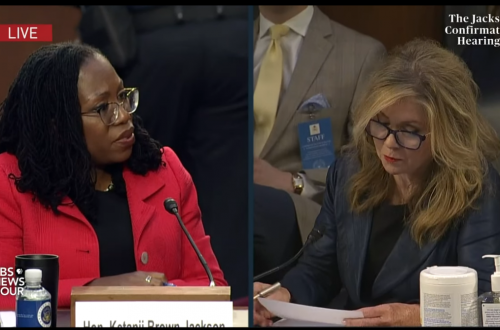Peter Leithart has an insightful piece at First Things explaining why gay marriage will ultimately fail. Because it owes to a culture-bound distortion created by heterosexuals (so-called “romantic marriage”), it will ultimately come to the same ruin. His conclusion is spot-on:
Gay marriage may further damage marriage; but heterosexuals damaged marriage nearly beyond recognition all on our own.
Read the rest here




11 Comments
ian Shaw
Interesting read for sure
buddyglass
Without having read the piece yet, does he define “fail”?
James Bradshaw
@Buddy: “Fail” in the sense that it will be less desirable and ultimately abandoned.
I don’t think that heterosexual marriage has “failed” by any stretch, though. Most people still marry. The problem is that people are marrying older, and many marriages do not endure. People are also having fewer children.
I don’t think all of this is bad, though. Women are no longer expected to spend the entirety of their lives in abusive or loveless marriages because of some misplaced sense of obligation. People are waiting to marry, so maturity of mind might increase marital longevity.
The downside is that people have come to see the marital relationship as disposable as marriage has come to be seen as a romantic partnership instead of something one must do in life (much like having a job). Remove the element of “ought”, and it’s not hard to see why marriages end.
Somehow, these two views will have to be reconciled in some way.
Absent a religious world view, I still think it can be done. Lifelong marriage is a worthy goal. It certainly helps in raising well-adjusted children into adulthood. Marriage also has demonstrable benefits for the spouses (even if no children are present).
I think we do have to jettison this Hollywood notion of soul mates and the idea that there’s some “perfect” match out there, though. There’s no such thing. There will always be demands and needs and incompatibilities on the part of the other person (to varying degrees). Swapping partners doesn’t make this go away. It just trades one set of issues for another.
buddyglass
The divorce rate is actually down. But, only because many of the couples that would eventually have divorced are just opting out of ever marrying in the first place. So, not a great development.
If you believe that (the vast majority of) men and women were fashioned by God to be most fulfilled in the context of a marriage relationship, then it seems pretty unlikely that heterosexual marriage will ever “fail”.
If you believe that humans are fashioned with a need for intimate, exclusive sexual / emotional relationships, then it’s also unlikely that homosexual marriage will fail. Because it’s arguably nothing more than a misdirected living out of a basic, God-given need. If the need is real then some some subset of humanity will continue to meet it in inappropriate ways.
Chris Ryan
What about the Bible precludes or even discourages romantic marriage??? I don’t see a scriptural basis for that at all.
And as far as people marrying later, I think that’s an undeniable good. People who marry later are far, far less likely to divorce.
Ryan Davidson
I think Leithart is actually quite correct here. The view of marriage that prevails in American culture today–and that is often put forth as being traditional–bears little similarity to what Christians practiced just 100 years ago. Carl Trueman made much the same observation some time ago.
And, yes, Leithart is correct here. Gay marriage contains the seed of its obsolescence. By demonstrating the absurdity of romantic marriage in more shocking terms, it reveals the fundamental absurdity of all forms of romantic marriage–whether between same-sex couples or opposite-sex couples. Thus, in an ironic twist, it opens the door for the re-emergence of a more pragmatic, less romantic, less sex-centric view of marriage.
The cultural elite in this country stopped marrying for romantic reasons a long time ago. Most marriages among elites are fairly pragmatic in nature. Notably, divorce rates are remarkably low among elites, as is the rate of same-sex coupling. In fact, many elites who may identify as queer often partner with persons of the opposite sex. After all, men and women complement each other in a variety of ways that have nothing to do with sex. Complementarity in these other areas is probably more important to a successful marriage than sexual complementarity, especially as the sex drive fades with age.
In my view, same-sex marriage is just the last evolutionary stage of our screwed-up romantic view of marriage. Certainly, the fathers of daughters should hope that romantic marriage passes sooner rather than later, as pragmatic marriages tend to be a lot cheaper to fund than their romantic counterparts. In fact, among many elites, it’s not uncommon for the couple to pay for their own wedding.
Anthony
Did I read you right? SSM in Europe are actually more likely to end in divorce.
buddyglass
Not sure I’d want to roll back the clock to 1914 when women were forced to marry (or remain dependent on their families) by virtue of the fact that they were incapable of supporting themselves financially, and because any revelation of sex outside of marriage earned a woman pariah status (but not a man).
Ryan Davidson
I’m not proposing that we seek to recover all aspects of such marriages. Even so, we desperately need to rethink our unspoken Freudian-romantic assumptions about marriage, and seek to extirpate them our Christian thinking about the institution. In many ways, models of marriage tend to develop more along inductive lines than along deductive lines. What develops in the wake of romantic marriage is anyone’s guess. But clinging tightly to an opposite-sex variant of romantic marriage and passing it off as “traditional” is not the answer.
buddyglass
“But clinging tightly to an opposite-sex variant of romantic marriage and passing”
I’d be interested to hear your alternative in more detail. Seems like, “I love this person, they love God, and our future plans more-or-less coincide” is a pretty good model. Would you categorize it as overly romantic and non-biblical?
Chris Ryan
I don’t think the marriage model of 100 years ago was particularly Biblical. Because of economic need and social pressure women stayed married to men who beat them, violated them, or committed adultery. There’s nothing Christian about that. My own grandmother stayed married to an abusive drunk who so beat her that the man’s own mother pleaded with my grandmother to leave him. It took 20 years for her to finally do so, after which she married my grandfather…whom she loved dearly for the remainder of her days. He died in ’73, but from then until ’06 when she finally died there wasn’t a day that went by that she didn’t talk about how much she loved him. That was romantic marriage. What she had before with the abusive alcoholic was the common marriage of a hundred years ago. Christians should be happy those days are long past.